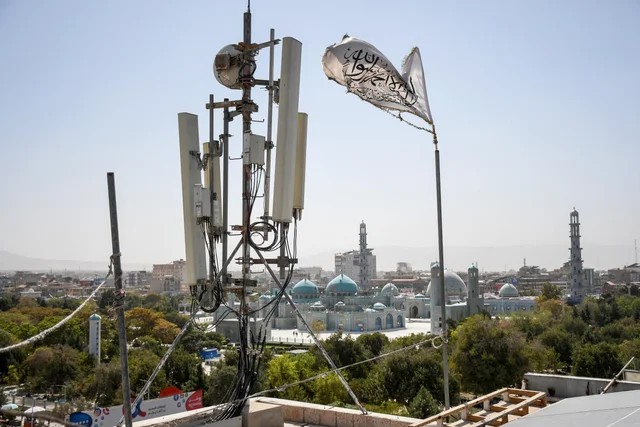By Eniola Amadu
Afghanistan has been plunged into a nationwide communications shutdown after the Taliban government ordered the suspension of telecommunications services, weeks after beginning to cut fibre-optic internet connections.
Independent watchdog Netblocks reported that the country was experiencing a “total internet blackout,” with disruptions also affecting mobile networks and satellite television.
International media outlets said they had lost contact with their offices in Kabul, while local reports indicated that flights at Kabul International Airport had been cancelled due to the outage.
The Taliban have not provided an official explanation for the shutdown.
A government official said the suspension would remain in place “until further notice.” The blackout follows reports that a committee in Kabul had been tasked with exploring whether to filter fibre-optic internet to “prevent immoralities.”
Diplomatic sources told the BBC that the cuts risk crippling Afghanistan’s banking and e-commerce systems.
Residents said fibre-optic services stopped late on Monday, with the full effects expected to be felt as businesses and banks reopen.
For weeks, Afghans in several provinces had complained of slow or unreliable connectivity. Many say their livelihoods and education have already been severely affected.
A money changer in Takhar province told the BBC that his daughters’ online English lessons had been halted. Another woman said she could no longer attend remote classes that might have led to employment.
“This is the last opportunity for many of us to study and work,” she said. “Now that chance is gone.”
Hamid Haidari, a former editor-in-chief of Afghan news channel 1TV, said the shutdown had left the country “enveloped in loneliness.”
Former MP Mariam Solaimankhil, now based in the United States, described the absence of Afghan voices online as “deafening.”
The blackout comes against the backdrop of a series of restrictions imposed since the Taliban’s return to power in 2021.
Earlier this month, women’s books were removed from universities and courses on human rights and sexual harassment were banned.
Women and girls remain barred from secondary and higher education, and midwifery courses — one of their last training avenues — were discontinued in late 2024.
The Taliban’s governor in Balkh province had earlier claimed the fibre-optic ban was designed to curb “evils.”
Rights groups say the latest restrictions deepen the country’s isolation and cut off vital lifelines for its population of 40 million.



